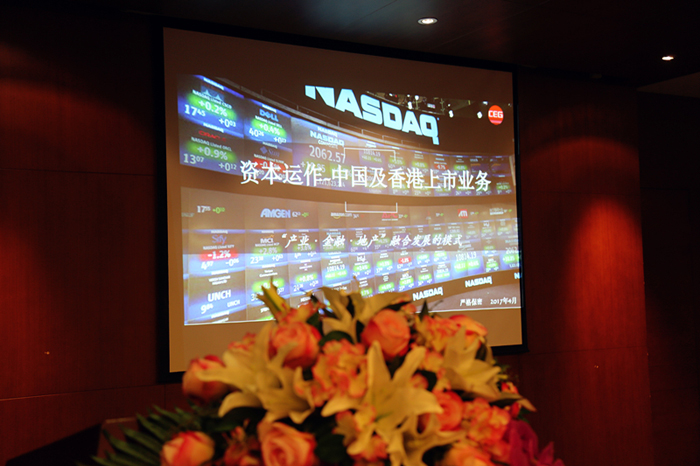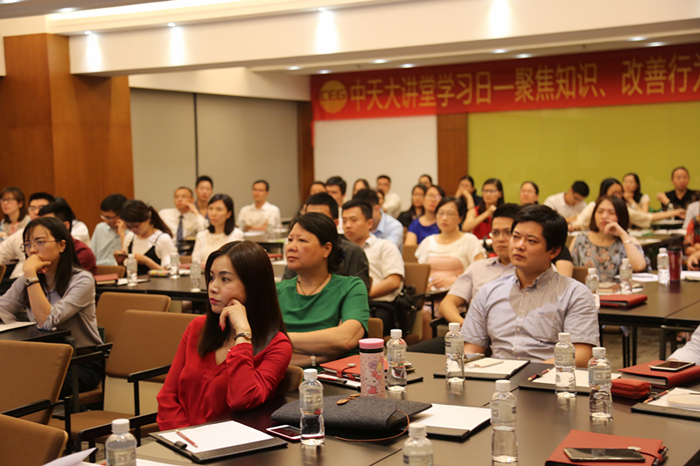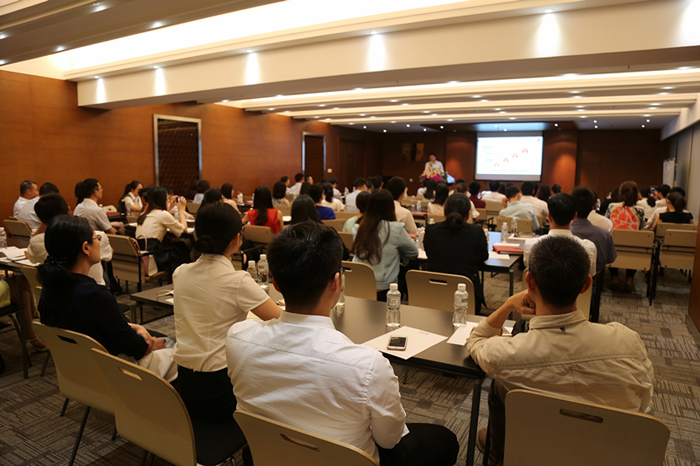
On the evening of Thursday, May 18, 2017, Zhongtian College invited the Group Vice President Feng Yong to provide us with a professional training on capital operation. The training consisted of 75 participants and the learning atmosphere was high.

The total dry goods brought by Feng is divided into four parts: the purpose and significance of capital operation, the overview of China's capital market, the operation process of A-share issuance and listing, and the operation process of listing and listing in Hong Kong.
Among them, in the chapter on the overview of China's capital market, Mr. Feng explained the key events of the four development processes of China's securities issuance market, so that everyone has a macro understanding of the Chinese capital market. Especially in the analysis of China's IPO market, through the key findings in 2016 (such as: 2016, 291 Chinese companies completed listing in the world, 227 new IPOs in Shanghai and Shenzhen, and 101 in the fourth quarter) Home) and the hot spot review of China's IPO market in 2016 (such as: experienced changes in the leadership of the China Securities Regulatory Commission, the most volatile new stock issuance rhythm adjustment in history, the new era of intensive IPOs opened by city commercial banks, and the experiencing wave of dangerous controversy Open the most serious group in history, the era of backdoor supervision, the first real sense of starting a mandatory delisting procedure due to fraudulent listing, the registration system, and the slow pace of the new board. The following conclusions are drawn: 2016 is very The steady upward trend also reflects the determination of the CSRC to improve the IPO corporate review speed for the registration system.

在對中國In the prospect of China's new stock market, Mr. Feng put forward four points: 1. The launch of Shenzhen-Hong Kong Stock Connect will gradually attract foreign institutional investors to participate more in the A-share market, which will help boost market sentiment in the long run. At the same time, Shenzhen-Hong Kong Stock Connect paved the “highway” for mainland investors to invest in Hong Kong stocks. The valuation difference between the two markets is expected to narrow further. 2. The State Council proposed that “the applicants in the northeast region should apply for the initial public offering to vote and give priority support”, and the CSRC will further issue relevant supporting policies. 3. The revision of the Securities Law establishes the principled provisions for the reform of the registration system. The second trial of the Securities Law was postponed and the market is expected to be carried out as early as April 2017. 4. The CSRC will further strengthen supervision of the market.

Later, in the interactive discussion, Mr. Sun asked Feng: In 2017, is there any possibility that China’s registration system will fall? Mr. Feng answered with his personal point of view: The registration system is unlikely to land in China in 2017. The main reason is that the rights of the auditing department affect the market. The reason for the acceleration of the IPO is partly because the road to backdoor listing has been blocked. Only by speeding up the IPO can we solve the problem of a large number of enterprise queues. At the same time, as many of the remaining problems of China's capital market are urgently needed to be resolved in 2016, the main direction of the CSRC in 2017 is to strengthen supervision and solve problems to establish a reasonable and regular channel, paving the way for the future registration system.

In the section on the operation process of the A-share issuance and listing, Mr. Feng responded to specific operational procedures (such as - project IPO planning, company positioning, team formation) by sharing the case of the main board and small and medium-sized board in China. The first process, the due diligence, the work process during the reorganization period, the production of the application documents, and the workflow for the application for the issuance period. The vivid cases make the professional knowledge easier to understand and the whole process is no longer boring.
Speaking of Hong Kong's capital market, Mr. Feng compares the annual listing and financing data, pointing out that more and more financial institutions are beginning to enter the Hong Kong market, launching various types of financial services through listing in Hong Kong, introducing overseas investors, and Hong Kong. As a platform to attract international investors. Taking the IPO financing amount of the world's major exchanges in 2016 as an example, there are 120 new listed companies on the Hong Kong Stock Exchange, with a financing amount of HK$194.7 billion, leading the global new investment market.

What impressed Xiaobian was the question of the ancient general: Some companies listed overseas, why are they keen to return to A shares? Taking Evergrande as an example, Mr. Feng answered the questions of the ancient generals from three angles. First, the business perspective: the company's international business is not much, using Hong Kong's capital platform, has not played a practical role in supporting the business development; Second, the board of directors does not recognize the valuation of Hong Kong; Third, the ability to refinance. In summary, the above three reasons have become an important factor affecting the return of many overseas listed companies to A shares.

The training of the Department, Mr. Feng, aims to broaden the financial knowledge structure, so that we can understand the latest developments and hotspots of capital operation in the market. Through nearly two and a half hours of study, all of you have expressed that you have upgraded from the complete blank of financial knowledge to the understanding of concepts. This is the most straightforward benefit of the course. Thanks to Mr. Feng for his wonderful sharing. In the future, we will arrange more valuable courses to enrich your knowledge.
Grateful to have you, the future along the way.
